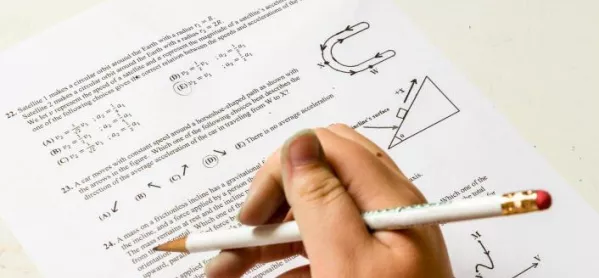Scrapping GCSE modules has led to an increase in the number of mock examinations that schools are making their pupils sit, according to a new study by Ofqual.
The exam regulator has this afternoon published in-depth research into the impact of moving to linear GCSEs, with students now sitting all their exams at the end of at least two years of study.
The research found that modular and linear GCSEs result in similar exam outcomes overall, and that teachers have “mixed views” about whether the latter is more stressful for pupils.
Read: Most girls say exams are top cause of stress
Advice: Six ways to reduce exam stress for GCSE students
Comment: ‘Parents feel exam stress, too’
However, the study also seemed to suggest that the move to linear GCSEs initiated by the government in 2013 has led to an increase in mock exams.
Interviewing teachers at 15 schools in 2015, researchers found that seven schools had introduced additional mock exams “which were intended to provide a variety of benefits previously served by modular examinations or early entry”.
GCSE mock exams on the rise
“The reasons given for this included the need to track progress very carefully, in the absence of ‘hard data’… which modular examinations provided; giving frequent feedback to the students on their learning; and providing the perceived motivational effect of external assessment upon students.”
According to the research, mocks were seen as a “way of preparing students to take a heavy examination load at the end of the two years, and [of providing] familiarity with the examinations which are now so crucial”.
In some schools, this extended to key stage 3. One deputy head commented: “We are now, from Year 7, giving them the experience of the exam hall, of the invigilators, of the lining up, of the exam timetable, but only in English and maths”.
The research notes that a “surprising number of interviewees thought that their students would be undergoing far more assessment under the new system”.
One head of KS4 commented: “It is going to feel to the students a lot more like it is dominated by assessments because we are going to have to, even if it is not a mock period or anything else, we are going to have to assess them in classes quite a lot, to ensure that they are developing those skills.”
As part of the research, teachers were also interviewed in 2017 on how they were preparing students, with many reporting that additional mocks were still being given.
One head of English said: “One of the big differences, of course, with 100 per cent exams is they need more exam practice… They’ve always done trial exams in December in Year 11, but the big change then is from January through till April they’ve basically got a trial exam every month.”
The researchers note: “While the treadmill of formal examinations has reduced, the corresponding increase in mock examinations means that assessment may still heavily feature in some students’ educational experiences.”




